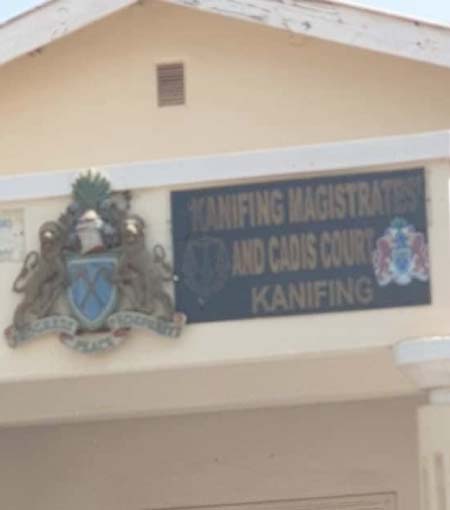
Prior to the sentence, he asked whether the convict was a first-time offender. The prosecuting officer, Sub-Inspector Kebbeh, answered that they had a record showing conviction of the convict on the 11th February, 2004, for store breaking and the 31st March, 2004, for stealing, all at Essau Magistrates’ Court. He then applied to tender the said record as an exhibit.
Magistrate Jabang asked the convict whether he had any objection to the tendering of the exhibit. “No, it is true. I was convicted by the Essau Magistrates’ Court,” the convict answered. The said conviction record dated 18th July, 2022, was admitted into evidence and marked Exhibit CR1.
“I am pleading for forgiveness. I have left kids behind and their feeding is a problem for me. I beg the court to temper justice with mercy. I have two wives with kids some of whom are going to school,” he pleaded.
The presiding magistrate then stated that he had the intention to give the convict an option of a fine for the offence committed in the spirit of Ramadan. “I thought that he was a first-time offender. On the whole he is a habitual offender as can be seen on Exhibit CR1. He is convicted twice by the Essau Magistrates’ Court for store breaking and stealing. This is his third conviction. It is clear therefore that the accused has not learnt a lesson from the past punishment he faced at the Essau Magistrates’ Court. He cannot therefore be allowed to be in the society and wreaking havoc on people. The society needs protection from habitual offenders like the accused,” he posited.
Delivering his judgement, Principal Magistrate Jabang told the court that the convict was arraigned before the court on the 19th July, 2022, and charged with the offence of theft contrary to Section 252 of the Criminal Code. He adduced that the particulars alleged the convict to have stolen four washing machines valued at D217,000 being the properties of Ba Kebba Krubally, and that the convict pleaded not guilty. In a bid to prove their case against the convict, he asserted, the prosecution led evidence by calling five witnesses and also tendered exhibits. He stated that the convict testified as a lone witness and tendered no exhibit.
“The sole issue which stands for determination is whether the case of the prosecution is proven as per the standard required by law,” he declared. He added that the law in this jurisdiction is that a person charged with an offence is presumed innocent until proven guilty and declared as such by a court of competent jurisdiction. He further said that the burden of proving the guilt of the convict was on the person who alleged that he had committed the offence. “In this case, the burden is on the prosecution since they preferred the charge against the accused. The standard required from the prosecution in proving the guilt of the accused is proved beyond reasonable doubt as provided under Section 144 (1) of the Evidence Act. However, where there existed doubts in the case of the prosecution, the case must be resolved in favour of the accused,” he asserted. Principal Magistrate Jabang was well equipped with numerous authorities to support his judgement.
Having gone through the testimonies of the prosecution witnesses, the presiding magistrate came to that conclusion and found he convict guilty.



